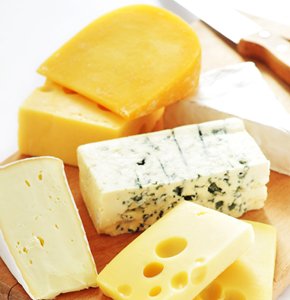Whether you’re a first time mother
or you’ve been through pregnancy before, chances are you’ve done your reading when it comes to ensuring a healthy, happy pregnancy. While you were perusing through pregnancy magazines and flipping through pregnancy books, you might’ve come across diet suggestions. This probably included a list of things that aren’t safe to eat while you’re pregnant, like certain types of fish and soft cheeses.
But what exactly is it that’s so bad for pregnant women? Here’s what you need to know about eating soft cheeses during pregnancy.
Which soft cheeses are we talking about?
Common types of soft cheeses that are generally considered risky for pregnant women include feta, Brie, Camembert, queso blanco, queso fresco, blue cheeses like Roquefort and gorgonzola and panela.
What’s so bad about them?
The thing that can be dangerous about these types of cheese is that they’re often unpasteurized. This means that they’re made without being heated to a certain temperature to kill off bacteria that may be present. Raw milk is often used to make soft cheeses, and certain types of bacteria can be found in raw milk – particularly a bacterium called Listeria monocytogenes.
Read more: Can eating fish during pregnancy make your baby smarter?
What are the dangers of Listeria monocytogenes?
This bacterium can be found in water and soil, meaning it can contaminate vegetables and animals. It’s killed off by pasteurization and cooking, but it can still be found in raw meats and raw milk. Those who are exposed to Listeria monocytogenes can develop listeriosis, which can be dangerous – especially for pregnant women. Initial symptoms are flu-like, and may involve headaches, muscle aches, nausea and vomiting. If it spreads to the nervous system, it can cause stiff neck, disorientation and convulsions. In pregnant women, it can also result in miscarriage, premature delivery, newborn infection and death in the unborn baby
. Antibiotics can prevent fetal complications and kill off the bacteria.
So, soft cheeses are totally off-limits?
Not all soft cheeses are off-limits – they’re only dangerous when they’re unpasteurized. As long as you check the labels on the cheese you buy and make sure to only get varieties that specifically say that they’re pasteurized, you should be fine. If you can’t see a label – like when you’re out at a restaurant or eating at someone else’s house – you’re better off avoiding soft cheeses just to be on the safe side.
Read more:
Can eating spicy food trigger labor?
